by Shari McMinn
You shall teach them diligently to your children, and shall talk of them when you sit in your house, and when you walk by the way, and when you lie down, and when you rise. (Deuteronomy 6:7 ESV)
As homeschool parents, we should realize that reading, writing, and arithmetic need to be taught diligently on a daily basis, often the same lessons over and over again for our struggling learners. Highly gifted students also need to know the basics before they can take on more difficult assignments to write essays, calculate algebra, or read adult level publications. Often the best way to learn and retain information is through utilizing sequential textbooks, workbooks, sometimes with digital tutorials, even online learning for higher “grade” levels. But all of the necessary “facts” for mastering the “3Rs” should be reinforced with the natural things that occur day-to-day in our lives.
Whether your child is an auditory, kinesthetic, or visual learner, daily practice with hands-on experiential learning helps the information “click and stick” with students. This is especially true for those who have unique learning characteristics or disabilities — readily seen or invisible.
A priority outcome of home education should be that our children gain a love for life-long learning instead of despising rote education, which we all might consider “boring.” Mixing up the methods for teaching and retaining information helps students and teachers both enjoy “school” more. This can easily be accomplished with a bit of effort as you sit in your house, take a walk around your neighborhood, practice a bedtime routine, and rise for the new day. In the above verse, the Bible offers us practical wisdom for ourselves and our children as we disciple them through homeschooling.
Daily reading can involve:
- Locating place names on maps or globes
- Older students reading aloud to younger
- Reading aloud instructions for board games
- Reading newspapers or magazines and completing crosswords or other puzzles
- Reading sticky-notes written by parents and left on mirrors or doors
- Reading then restating food item and household supply labels, road signs, brochures
Everyday math can include:
- Collecting nature findings then counting, measuring, and sorting them by type and size
- Counting forward or backward by 2s, 5s, 10s to fall asleep
- Counting steps taken and laundry items as they are folded
- Creating homemade flashcards for addition, subtraction, multiplication, and division
- Dividing or multiplying budget items per family member or quantities needed
- Estimating grocery list costs, price checking at the store, review of expended money
- Identifying different bills and coins; adding them together for payment and subtracting for change
- Measuring while constructing, crafting, or cooking
- Reciting math facts while jumping rope or on a trampoline
- Throwing dice then adding and subtracting the dots shown
Frequent writing might be:
- Cards or letters to friends and family
- Copywork of Scripture passages
- Listing tasks to be accomplished each day
- Labeling student’s own artwork with brief descriptions, name, and date
- Taking notes during church sermons or while listening to read alouds or audio books
- Thank you notes for holiday gifts
- Writing out homemade flashcards for phonic sounds, spelling, or vocabulary words
Art, Bible, civics, history, and science can be learned through regular experiences such as:
- Collecting insects; study them alive in a created habitat indoors or pin them dry into collections
- Conducting “kitchen” science experiments; journaling the predictions and results
- Discussing as a family the Bible at breakfast, current events at lunch, and family topics at dinner
- Going on field trips to culturally diverse businesses, local mom/pop shops, or historic sites
- Journaling with both writing and sketching — take and use at landmarks, museums, and parks
- Nature walking to observe animals, plants, and rocks; research them after arriving home
- Planning, preparing, and enjoying meals together that are different than your usual
- Playing topical board games (Bible, culture, geography, history, etc.)
- Reading or listening to biographies or historical fiction; if local, explore the places described
- Singing songs with names of states, about national heritage, nursery rhymes, Psalms or hymns
- View accurate documentaries online together; discuss what was learned
Some or all of these ideas, if followed through consistently over the years, will give your child(ren) a comprehensive education regardless of their intelligence or the skill level at which they are able to work. Trust me; I know. This is what we provided for our nine homeschooled children, all unique learners in the way God created them to be. They graduated and are now thriving as adults according to their own interests and abilities.
Remember, the days may be hard and long, but the years fly by! Love your children and enjoy being with them in the good times, praying for joy, peace, and hope through Jesus Christ during the hard times.
For additional practical encouragement, I hope you will take time for your own learning at these links:
- If you often compare yourself and children to others, listen to this podcast about Mom guilt.
- Find lots of helpful resources at our CHEC.org webpage for Unique Learners.
- Watch SPED Homeschool’s podcast on College Admission Tips for Unique Learners.
My next blog, “Graduating to What?” will be posted on May 24, 2023 (the 4th Wednesday).
P.S. If you have a topic I should write about, please email me with your suggestion(s). This blog is for you!
Shari McMinn, your trusted homeschooling friend


Leave a Reply